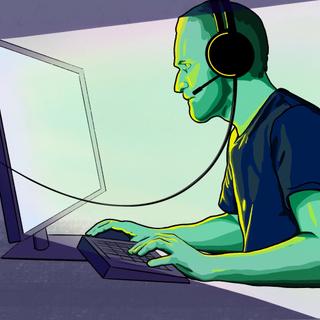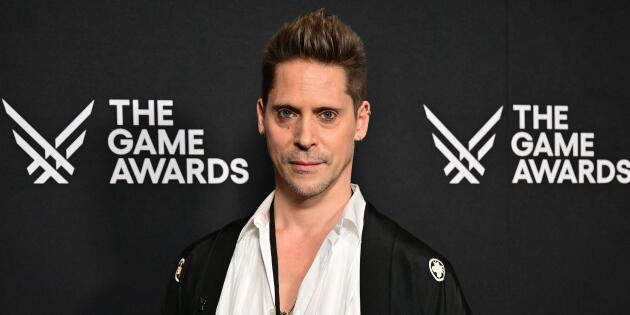


Voice actors, invisible stars who breathe life into video games
In DepthLong in the shadows, the actors who lend their voices, gestures and expressions to video game characters are beginning to gain recognition. But their rise to fame could come up against economic challenges.
Among the many paradoxes of the December 2023 Game Awards, there was the ambiguous status of actors at the event which aspires to become the "Oscars of video games." Although the ceremony was entirely composed of speeches by Hollywood stars from Matthew McConaughey to Timothée Chalamet, who came on stage to announce the blockbusters of the year to come, and although the nominees included world-famous film and TV actors such as Idris Elba (who was absent) and Cameron Monaghan, the video game industry chose to award the prize for best performance to one of its own talents.
The trophy went to the UK's Neil Newbon for his portrayal of the flamboyant vampire Astarion in Baldur's Gate III (2023). The actor – and veteran gamer – may be little-known to the general public, but his career in the industry spans more than 15 years, with titles such as Castlevania: Lords of Shadow 2 (2014), Detroit: Become Human (2018) and Resident Evil Village (2021). Fully versed in techniques specific to video games, Newbon carefully crafted Astarion's beguiling gaze, sarcastic accents and mannered gestures, delivering a nuanced performance that appealed to gamers and critics alike.
This is certainly not the first time that the Game Awards have honored actors who have made video games their medium of choice. But it is a relatively recent development: the Spike Video Game Awards, forerunners of the Game Awards, for a long time rewarded stars from the big and small screens making a foray into video games between two films, in an attempt to "starify" the ceremony. More generally, the industry's uncertainty about the nature of actors' contribution to video games has long been palpable. In the UK, it was not until the ninth Bafta Game Awards, in 2012, that a category rewarding actors was created; as for the French Pegasus ceremony, no award celebrates actors to date.

Layers that make the actor 'disappear'
A first obstacle to their recognition seems to be the very way the performance is produced, articulated Alexis Blanchet, senior lecturer at Sorbonne-Nouvelle University. "Actors are used in a 'fragmented' way: via motion capture, the actors' bodies and movements are used for animation tests; via performance capture, their faces and expressions are used to model and animate human faces; their voices are used for dialogue and narration."
Anya Christiansen, co-founder of agency ShineHouse Group, which represents Newbon, has been grappling with the issue since she started working with game talent in 2017. "It may seem obvious, but live-action talent has the benefit of facial recognition because it’s their literal face on screen. With gaming talent, even when an actor is delivering full performance capture including their facial expressions, it is still rarely their face that ends up being the face of the character on screen, so it's far more challenging to elevate their personal brand."
You have 70% of this article left to read. The rest is for subscribers only.
